Board Game Review
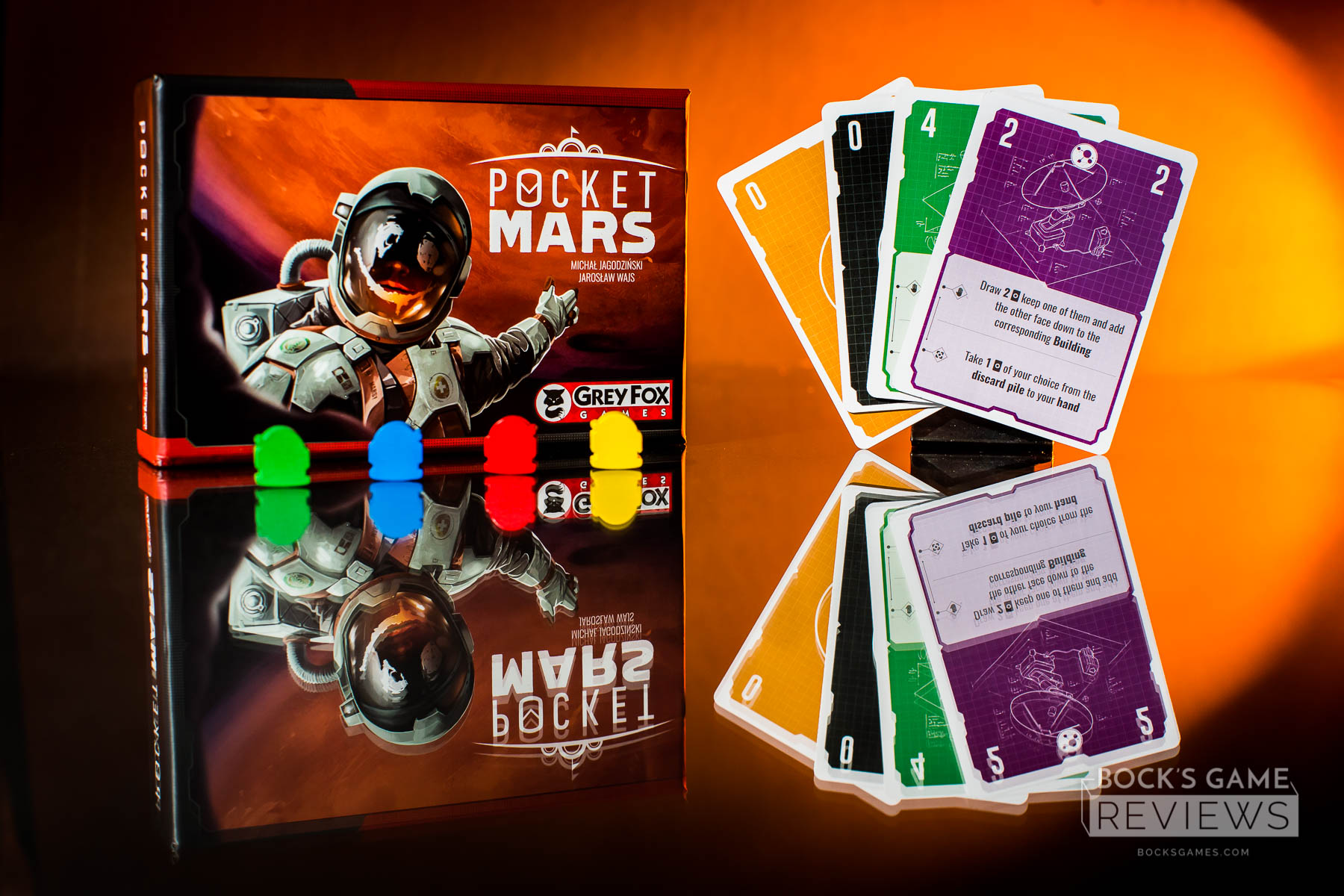
Publisher: Grey Fox Games. Designer: Michał Jagodziński.
Artist: Jarosław Wajs. Year Published: 2017.
Players: 1-4. Time: 15-30min. Age: 10+. WEIGHT: 2/5.
POST BY CATHY. Small-box games have a tough current to swim in. They don’t get a lot of love. You rarely see them on the BGG hotness. Very few make it to the hallowed halls of the top 100. And they’re seldom seen on the tables of my weekly game night.
Small-box games seem to be reserved only for those little in-between moments: sitting at the airport, waiting at the DMV, or needing to kill a few minutes while another group finishes a bigger, longer, and let’s face it, better, board game.
They say it’s not about the size, but who are we kidding here. When it comes to board games, it most definitely is a little bit about the size.
To succeed in the flood of small-box games that come out each year and to compete with the quick-play bigger games (like Santorini, Tsuro, and Magic Maze), small games absolutely need to stand out. The gameplay has to be quick, the art and design has to be clean and thematic, the decisions have to be compelling, and, above all, it has to be unique. Pocket Mars accomplishes…some of this.
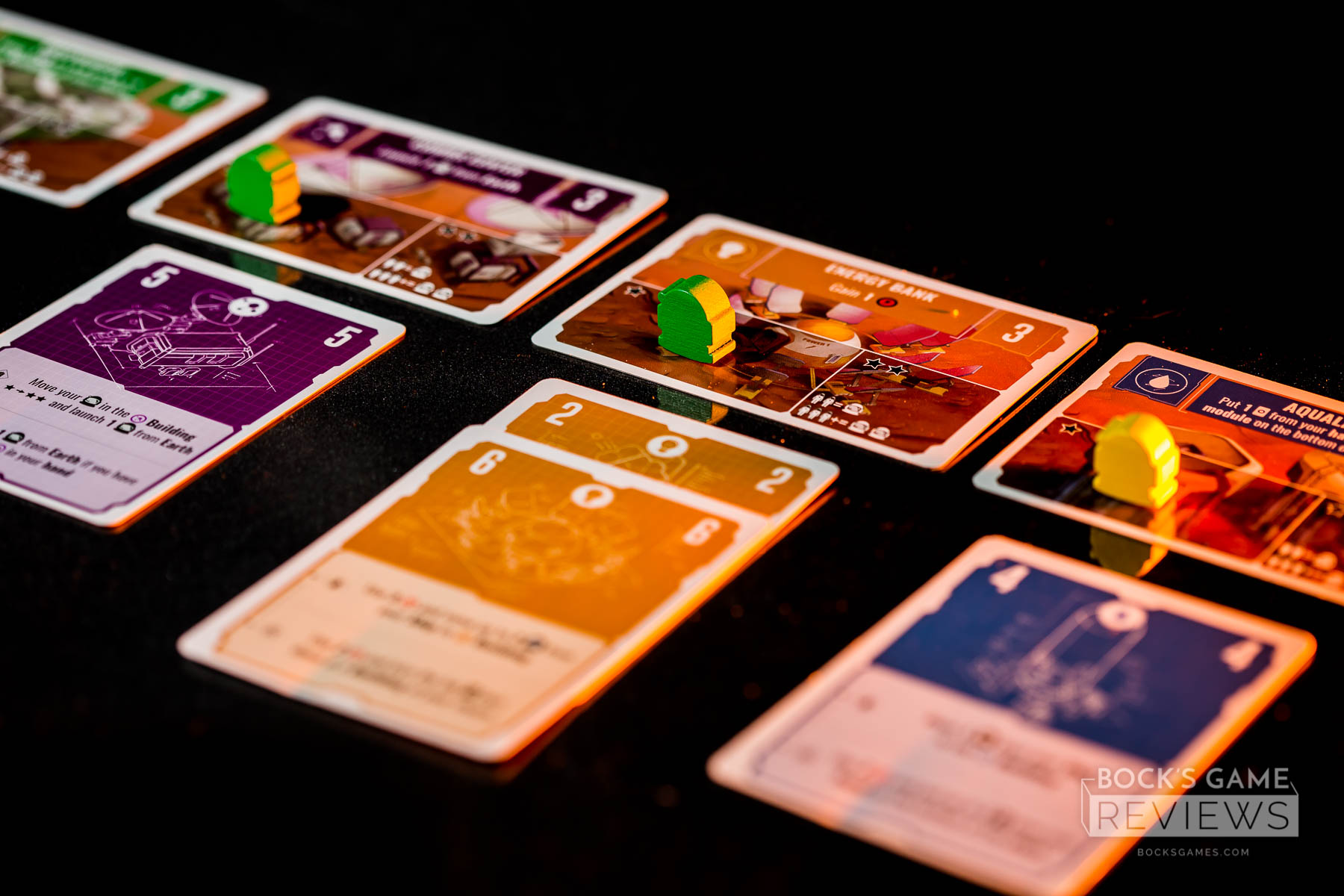
Pocket Mars puts everything it aspires to be right there on the cover. It’s a Mars-themed game that [possibly] could fit in a [fairly large] pocket. The main components are simple: a deck of sciencey-looking numbered cards, the five building cards of the Mars colony, and a single illustrated Earth card. Each player also receives a spaceship card and seven tiny helmet meeples in their player color.
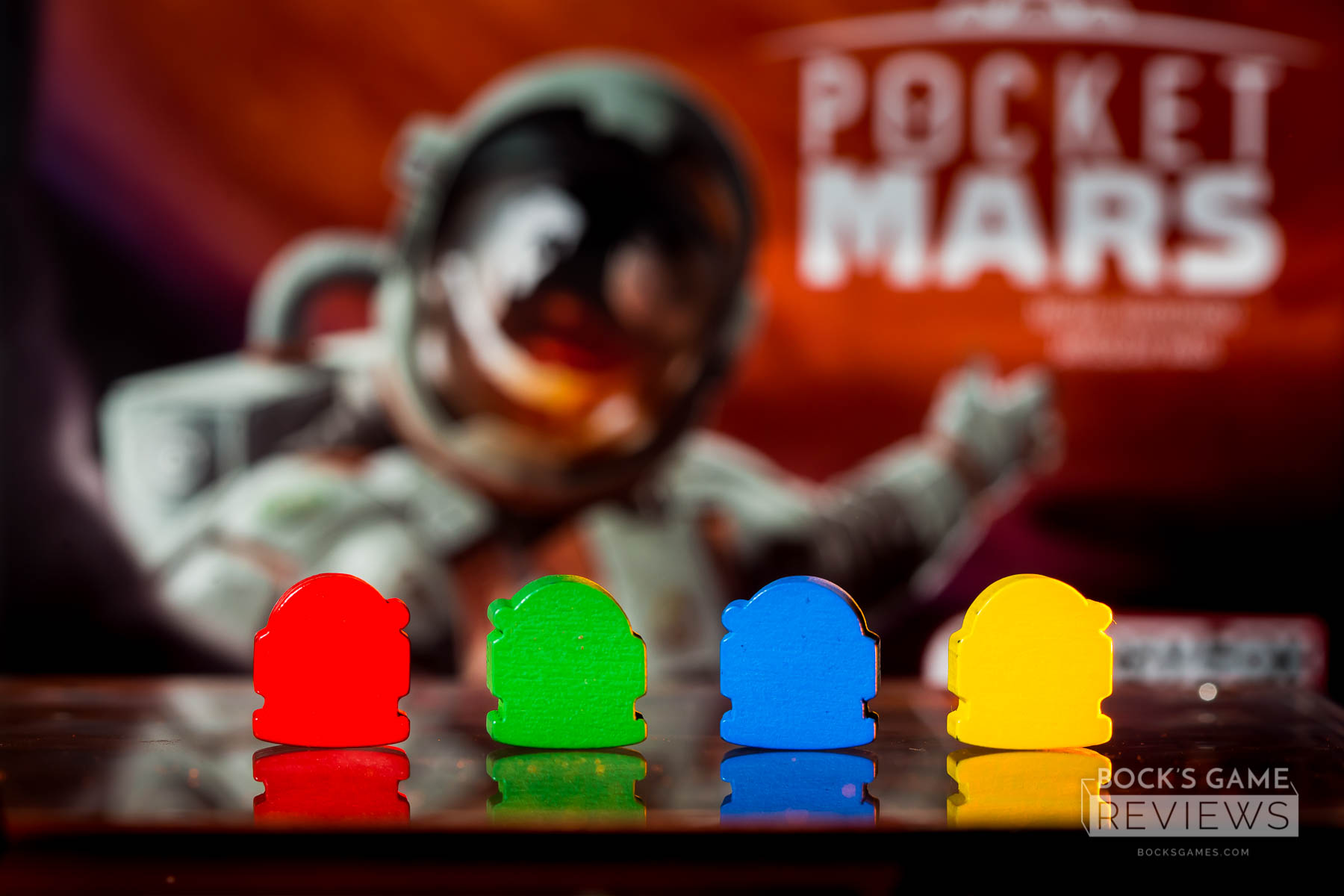
The goal in Pocket Mars is to transport all of your tiny helmet meeples (sorry…colonists) from Earth to Mars faster and better than your opponent(s). It seems so simple, right? So easy? Well, sorry to be the bearer of good news, but it’s not easy. Behind the small box, simple components, and quick gameplay of Pocket Mars, there’s actually a fair bit of depth to the decision-making.
The source of this depth is the cards, because the cards in this game are dual-use. I could pause for a moment and wax poetic about the beauty of multi-use cards and the deliciously painful decision-making they induce, but I’ll spare you. I’ll just say that the dual-use cards in Pocket Mars are no exception. They are the core of what is interesting about this game.
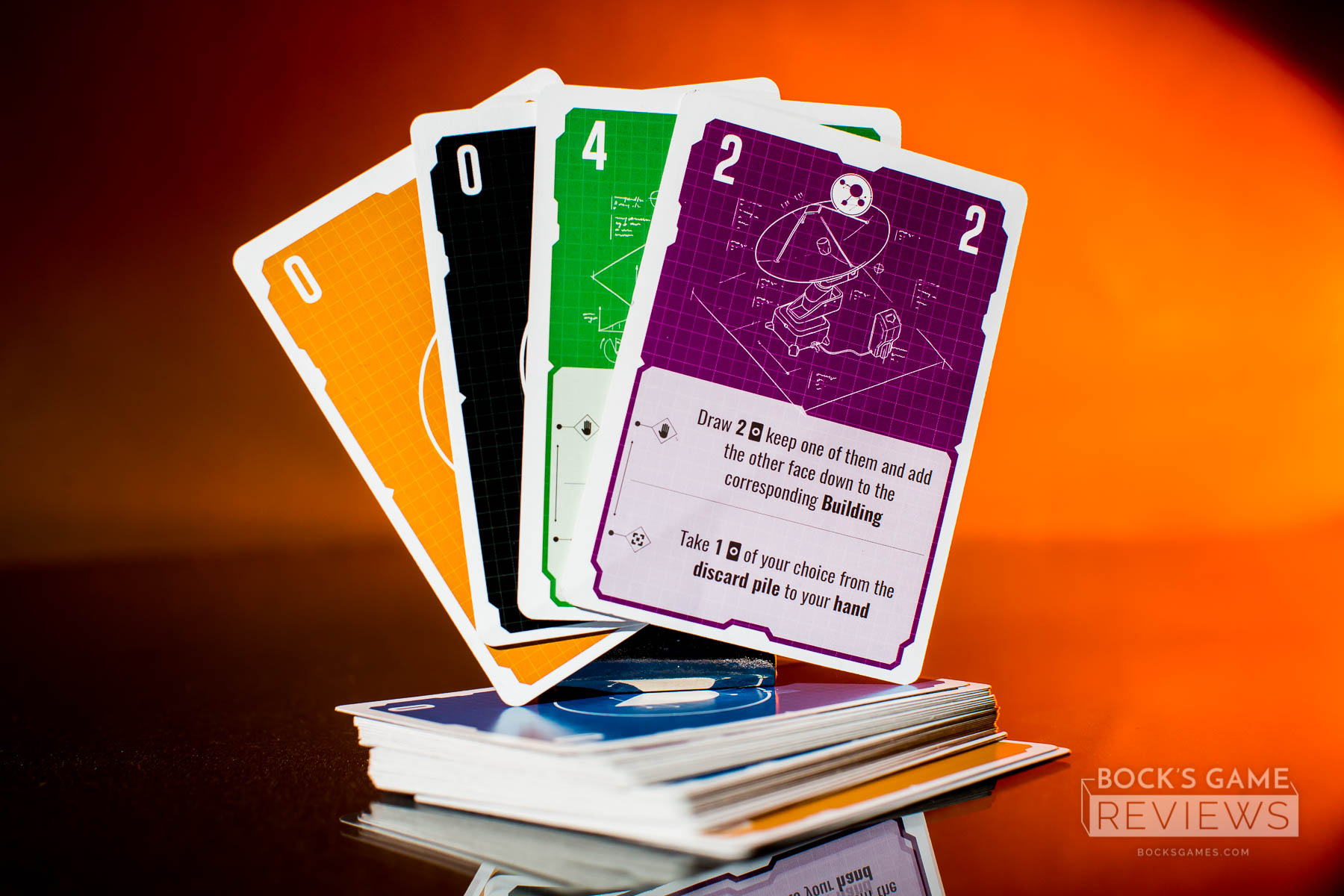
At the beginning of each turn, you’ll have four cards: two in your hand and two face down in front of you in your prep module. Each card has a color, a number value, and two actions. If you play a card from your hand, you get to activate its top action before discarding. But if you play a card from your prep module, you trigger three effects. Instead of being discarded, the card is played beneath the building matching its color. If the card’s value is greater than the card under it, you get to move a colonist from your spaceship to the Mars building. Then, you’ll activate the bottom action of the card, as well as the building’s action.
The truly difficult part here comes at the end of your turn when you draw back up to four and have to choose which cards to delegate to the prep module and which to leave in your hand. The cards in your hand should have top actions that will set up more effective future turns. This forces you to plan ahead and figure out ways to make the cards work together. Pre-planning is a must in this game, and that is what makes Pocket Mars a satisfying and, considering the short time it takes to play, pretty crunchy game.
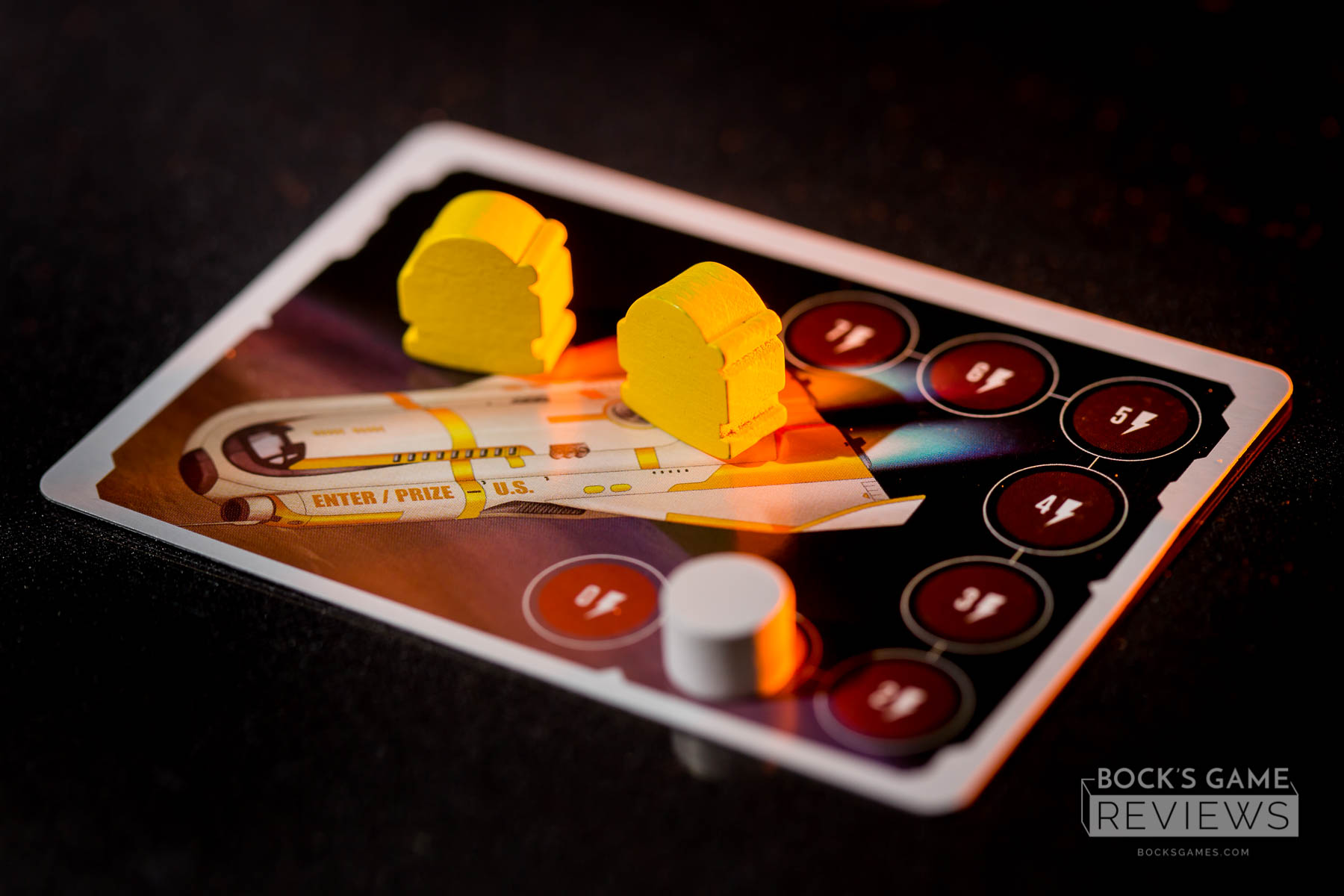
The best small-box games are ones that I’m excited to have a reason to pull out, ones that I would consider playing multiple times in a row on a game night in place of a larger game. But I’m afraid that Pocket Mars just isn’t that. While I’m playing Pocket Mars, I am fully invested and engaged and it’s great. But when I pack it away, piling it precariously atop the stack of small-box games on my shelf, I forget about it until the next time I’m facing one of those in-between moments. And even when those times come around, it’s just not Pocket Mars I find myself reaching for.
Yes, Pocket Mars provides some interesting decision-making, but that just isn’t enough when there are other little games that do the same thing and do it better. The cover art of Pocket Mars promises an exciting Mars romp waiting inside, but then it doesn’t deliver. The theme is thin and the card art is bland. I spend much of the game pretending I’m transporting my tiny helmets to the shelves of a tiny helmet specialty store instead of a bustling Mars colony.
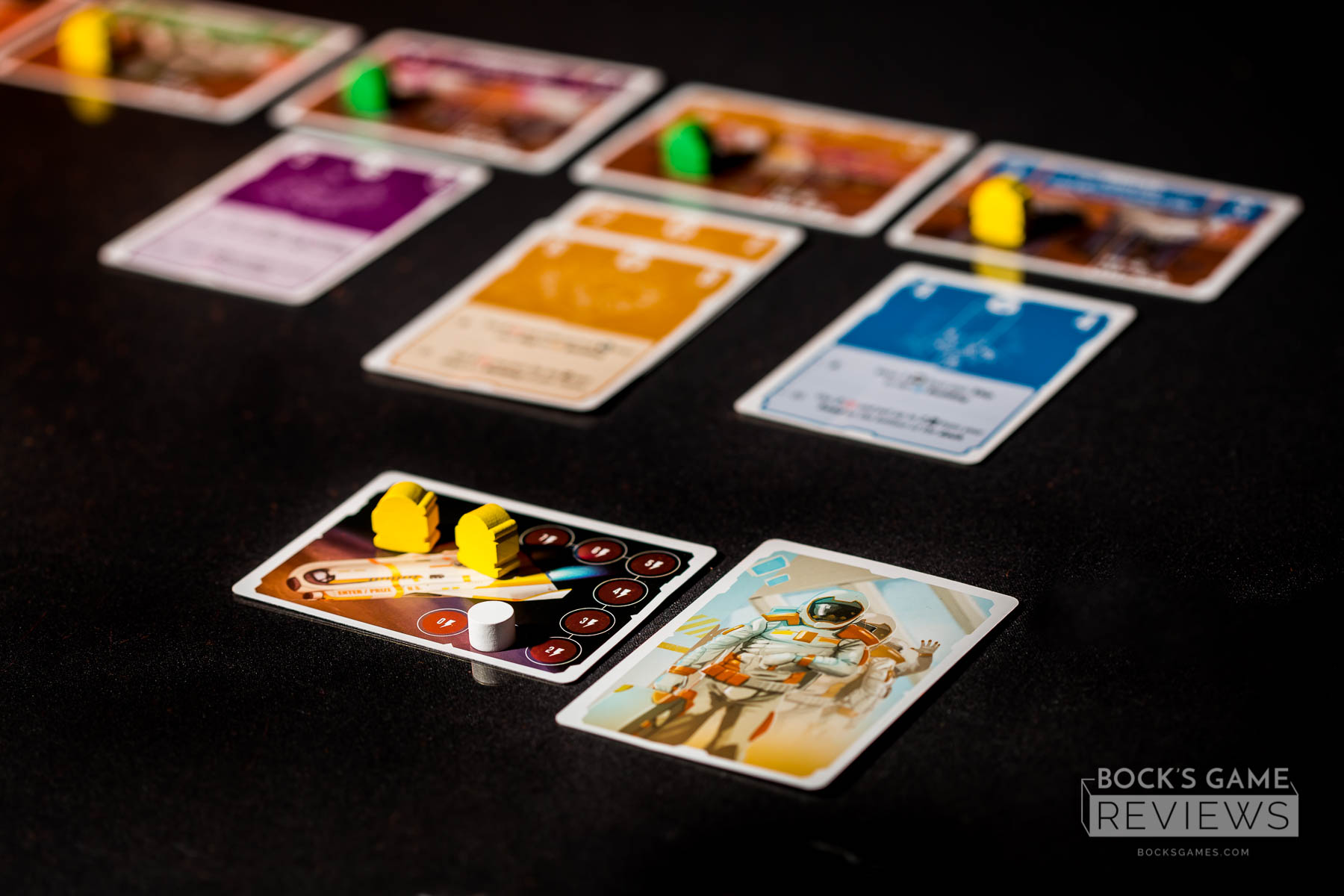
So if you’re looking for a new small-box game, Pocket Mars is definitely a great one to try. But if you’re looking for a staple in your collection, you might look elsewhere. Pocket Mars is interesting to explore for a few games, but it doesn’t have the staying power it needs for a small-box game to succeed in a big-box world.

What are some small-box games you’d recommend?
Arboretum is definitely my favorite!